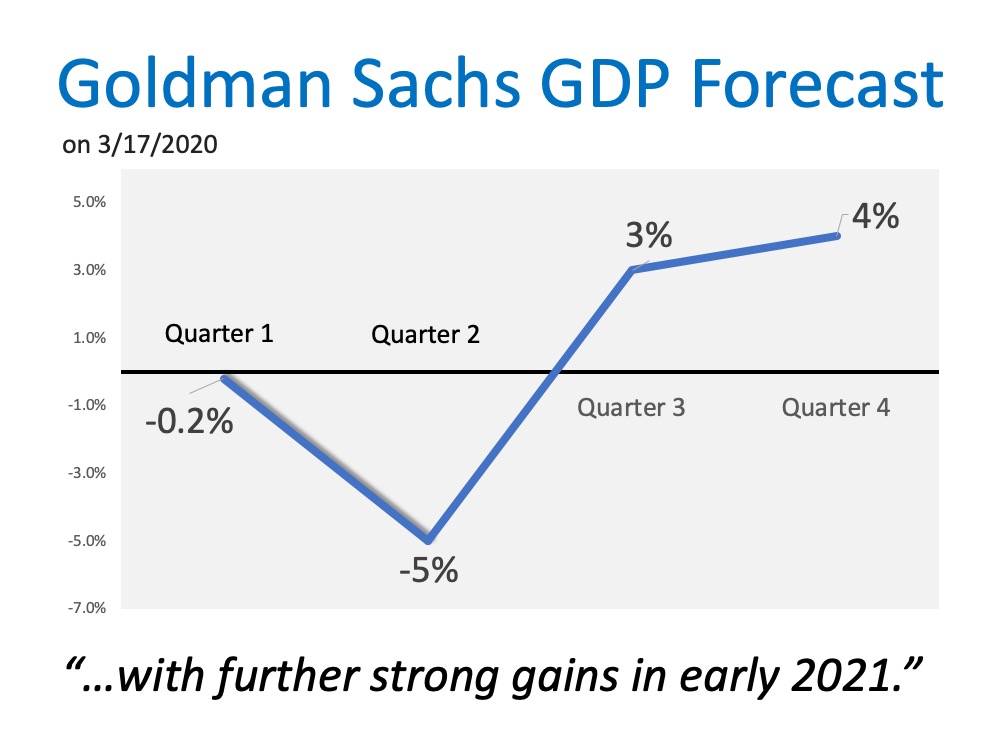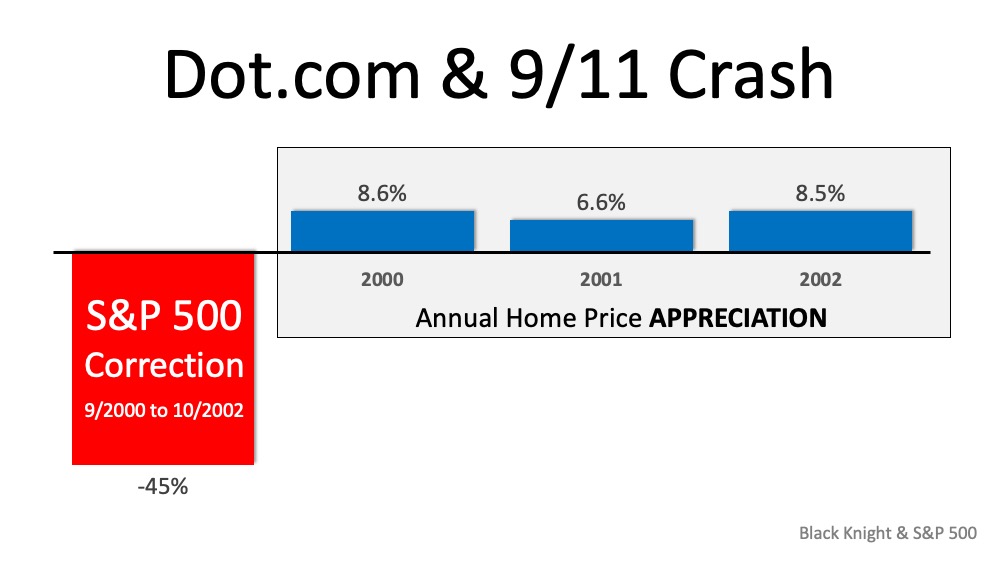More and more economists are predicting a recession is imminent as the result of the pullback in the economy caused by COVID-19. In this blog we look at what the experts are saying about the severity of the recession, and what it might mean for the housing market.
Let’s start with a definition of recession. According to the National Bureau of Economic Research:
“A recession is a significant decline in economic activity spread across the economy, lasting more than a few months, normally visible in real GDP, real income, employment, industrial production, and wholesale-retail sales.”
If it feels to you like we are already in a recession, you’re probably not wrong. Bill McBride, the founder of the financial blog, Calculated Risk, believes we are already in a recession:
“With the sudden economic stop, and with many states shutting down by closing down schools, bars and restaurants…my view is the US economy is now in a recession (started in March 2020), and GDP will decline sharply in Q2. The length of the recession will depend on the course of the pandemic.”
How long and how deep will it go?
No one knows for sure. It depends on how long it takes to beat this virus. As we’ve seen over the last few weeks, the economic consequences of the COVID-19 virus is continually evolving, and that is not expected to change over the coming weeks. However, according to Darrell Cronk and Paul Christopher at the Wells Fargo Investment Institute, “… [a]lthough the size of the disruption is expected to be large, it is not predicted to last long.”
Goldman Sachs anticipates we will see a difficult first half of the year, but the economy will recover in the second half (see below):Goldman also projects we’ll have “further strong gains in early 2021.” This aligns with the projection from Wells Fargo Investment Institute:
“Once the virus infection rate peaks, we expect a recovery to gain momentum into the final quarter of the year and especially into 2021.”
McBride is more conservative, predicting that “the recovery will probably be tepid at first – and then pickup.” Again, no one knows for sure how long the pandemic will last. The hope is that it will resolve sometime over the next several months. Most agree that when it does, the economy will regain its strength fairly quickly.
Will the Stock Market Correction Impact Home Values?
With the housing crash of 2006-2008 still visible in the rear-view mirror, many are concerned the current correction in the stock market is a sign that home values are also about to tumble. What’s taking place today, however, is nothing like what happened the last time. The S&P 500 did fall by over fifty percent from October 2007 to March 2009, and home values did depreciate in 2007, 2008, and 2009 – but that was because that economic slowdown was mainly caused by a collapsing real estate market and a meltdown in the mortgage market.
This time, the stock market correction is being caused by an outside event (i.e., a virus) with no connection to the housing industry. Many experts are saying the current situation is much more reminiscent of the challenges we had when the dot.com crash was immediately followed by 9/11. Here’s how David Rosenberg, Chief Economist with Gluskin Sheff + Associates Inc., explained it recently:
“What 9/11 has in common with what is happening today is that this shock has also generated fear, angst and anxiety among the general public. People avoided crowds then as they believed another terrorist attack was coming and are acting the same today to avoid getting sick. The same parts of the economy are under pressure ─ airlines, leisure, hospitality, restaurants, entertainment ─ consumer discretionary services in general.”
Since the current situation resembles the stock market correction in the early 2000s, let’s review what happened to home values during that time.The S&P dropped 45% between September 2000 and October 2002. Home prices, on the other hand, appreciated nicely at the same time. That stock market correction proved not to have any negative impact on home values.
Bottom Line
This virus is not only impacting the physical health of Americans, but also the financial health of the nation. The sooner we beat it, the sooner our lives will return to normal.
More importantly, most experts do not expect a repeat of the severe recession of 2008-2009, which impacted the housing market, and caused declines in housing prices by as much as 20% nationwide. In that recession, the housing crisis was caused by problems endemic to the financial system. This downturn is caused by an external factor, i.e., a virus, with no relationship to the housing market. Moreover, to a large extent, governments have learned from the mistakes of the past. Policy measures are being put in place now to support the credit markets (such as lower interest rates, government spending on health care, and low-cost loans to businesses) that should help boost confidence.
Finally, here again is the Wells Fargo Investment Institute:
“History suggests fear of uncertainty often provokes a stronger reaction than what reality eventually delivers. When volatility and positioning measures approach extreme levels, investors often can find opportunity. We believe this condition is in the process of completing.”
In layperson’s terms: “…the only thing we have to fear is…fear itself.” (Franklin D. Roosevelt, 1933 inaugural address)
Updates:
Quarter 1 data from Goldman Sachs was updated from 0% to -0.2% on 3/17/20 after its initial release, signalling we are officially in a recession.
It was again updated -0.2% to -6% on 3/20/20. From Goldman Sachs Research:
- Over the last few days social distancing measures have shut down normal life in much of the US. News reports point to a sudden surge in layoffs and a collapse in spending, both historic in size and speed, as well as shutdowns of many schools, stores, offices, manufacturing plants, and construction sites. These developments argue for a much sharper drop in GDP in Q1 and Q2.
- We expect declines in services consumption, manufacturing activity, and building investment to lower the level of GDP in April by nearly 10%, a drag that we expect to fade only gradually in later months. We now forecast quarter-on-quarter annualized growth rates of -6% in Q1, -24% in Q2, +12% in Q3, and +10% in Q4, leaving full-year growth at -3.8% on an annual average basis and -3.1% on a Q4/Q4 basis.





